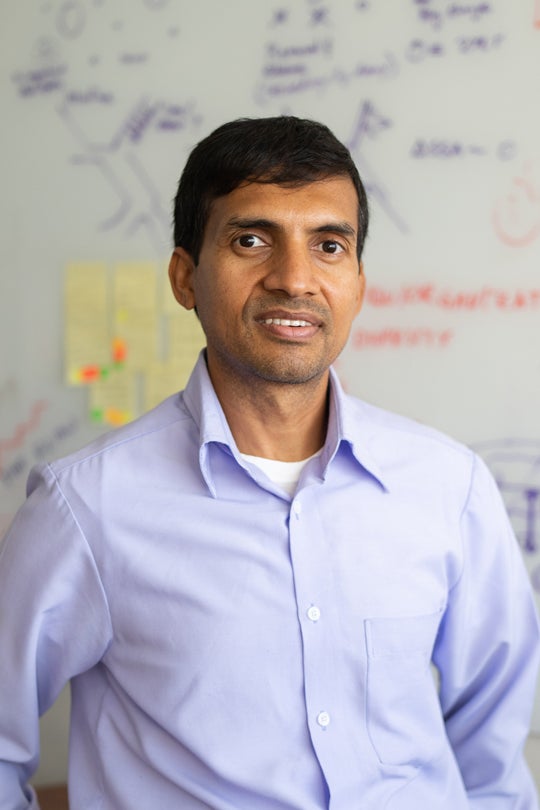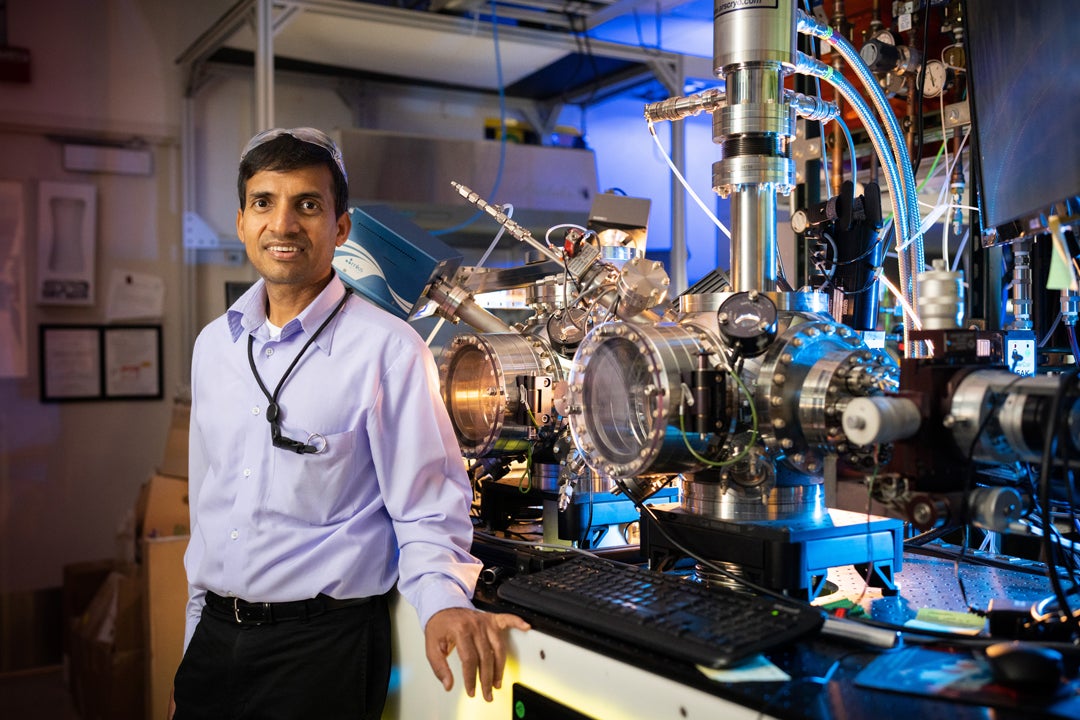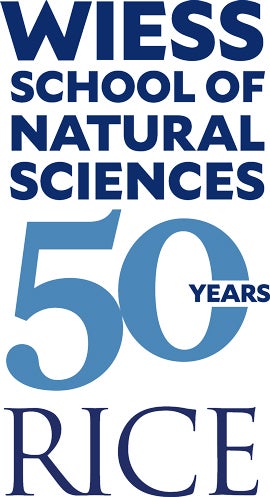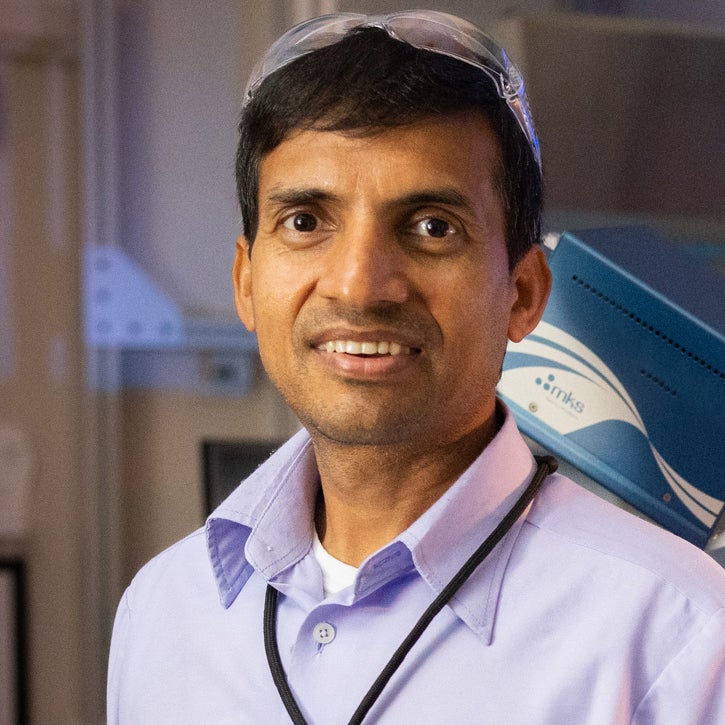
Science has taken Bishnu Khanal ’09 on a remarkable journey — from humble beginnings in a rural village in Nepal to the ranks of management at one of the world’s premier research facilities, Sandia National Laboratories in Albuquerque. And he’ll be the first to tell you that determination is the key to his success.
“I may not express it perfectly, but this has always been my approach,” said Khanal, an R&D manager for high-reliable electronics. “When people say something will not work, I remain persistent. I just keep trying until I solve the problem.”
That mindset developed early in elementary school, where classes were sometimes held outside due overcrowding and lack of physical infrastructure. His parents, who had little formal schooling, fervently believed education was the key to a better future.
While Khanal was academically talented, his true gift was an ability to focus on a problem, bear down and not become frustrated.
With success, his horizon expanded, from his village to the capital of Kathmandu, where he graduated and eventually taught college, and from Kathmandu to the world, where he decided to pursue science at the highest level.
“I could barely speak a full English sentence when I got here,” Khanal said. He arrived in 2005, owing $2,500 to friends who’d underwritten his journey. He chose Rice based on guidance from mentors and the university’s reputation in nanotechnology research.

He’s still grateful for the welcome he received at Rice Graduate Apartments, where he found both an international community of newcomers like him and all of the kitchen utensils, furniture, bedding and other household items — donated by Rice retirees and staff — that he’d need to start a new life. “Without any funds or supplies upon arrival, I cannot imagine how challenging the initial adjustment would have been without that support,” he said.
The campus was beautiful and intellectually stimulating, but he struggled to communicate, to make ends meet, to repay his debts and to succeed in the lab. Eventually, he found his identity as a scientist: He was the problem-solver, the one who took on challenges that stumped others.

“Maybe we should give it to Bishnu to try,” he recalled his advisor, Prof. Eugene Zubarev, saying about difficult problems on several occasions.
His trademark blend of persistence, optimism and no-nonsense empiricism produced findings at Rice that have been published in more than two dozen papers. And the approach has fueled his career, first as a postdoctoral researcher at Los Alamos National Laboratory and later as a technology development engineer at Intel Corp. He joined Sandia in 2018 and became a R&D Manager of Materials Science and Tribology in 2022, the same year he was recognized with a Most Promising Engineer of the Year Award from the Asian American Engineer of the Year program.
“The most important lesson I learned at Rice was the value of resilience and the importance of never giving up in the face of challenges,” Khanal said. “That mindset has proven crucial in my career, especially in solving difficult problems, where setbacks are common. Embracing resilience and adaptability has allowed me to approach problems with a positive mindset and to find innovative solutions.”
He hasn’t forgotten his roots or the many kindnesses that helped him achieve his dreams. He regularly gives back, including volunteering to judge science fairs, helping at Road Runner Food Bank in New Mexico and establishing a trust fund to support underprivileged students from his hometown in Nepal. He is also deeply dedicated to empowering the next generation of scientists and engineers, serving as a postdoctoral mentor and as a member of the Wiess School of Natural Sciences Advisory Board.

